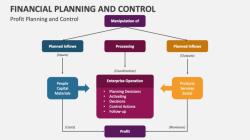What you should consider before applying for a HELOC?
Before applying for a Home Equity Line of Credit (HELOC), there are several important factors to consider. A HELOC is a significant financial commitment, and understanding the implications is crucial. Here are some key considerations:
Equity in Your Home:
- You'll need to have sufficient equity in your home to qualify for a HELOC. Equity is the difference between your home's current market value and your outstanding mortgage balance. Lenders typically require a minimum level of equity, often around 15-20%.
Interest Rates:
- Understand the interest rates associated with HELOCs. They are typically variable and can change over time, affecting your monthly payments. Consider whether you can handle potential rate increases.
Terms and Conditions:
- Review the terms and conditions of the HELOC carefully. Pay attention to the draw period (when you can access funds) and the repayment period (when you must repay the borrowed amount). Understand the minimum monthly payments required.
Credit Score:
- Your creditworthiness plays a significant role in obtaining a favorable HELOC. Lenders will check your credit score and history. A higher credit score often leads to better terms and lower interest rates.
Lender's Requirements:
- Different lenders may have varying requirements for HELOC approval. Research and compare offers from multiple lenders to find the one that best suits your needs and financial situation.
Loan-to-Value (LTV) Ratio:
- Lenders calculate the LTV ratio, which is the amount you're borrowing compared to your home's value. A lower LTV ratio can lead to better terms and lower interest rates.
Fees and Costs:
- Be aware of any fees associated with the HELOC, such as application fees, closing costs, annual fees, or prepayment penalties. These fees can impact the overall cost of the loan.
Reason for Borrowing:
- Have a clear purpose for using the HELOC funds. Whether it's for home improvements, debt consolidation, education, or another purpose, make sure it aligns with your financial goals and budget.
Budget and Repayment Plan:
- Develop a budget and repayment plan to ensure you can comfortably make the payments during the draw period and the repayment period. Consider how interest rate fluctuations may affect your budget.
Market Conditions:
- Consider the economic and real estate market conditions. Changes in property values can impact the amount of equity you have in your home and your ability to access funds through a HELOC.
Risk Tolerance:
- Understand that a HELOC uses your home as collateral. If you default on payments, you risk losing your home through foreclosure. Assess your risk tolerance and your ability to meet your financial obligations.
Alternative Options:
- Explore alternative financing options, such as personal loans, home equity loans (which offer a lump sum instead of a line of credit), or refinancing your primary mortgage. Compare the pros and cons of each option.
Tax Implications:
- The tax deductibility of HELOC interest may vary depending on how the funds are used. Consult with a tax advisor to understand the potential tax implications.
Before applying for a HELOC, it's advisable to consult with a financial advisor or mortgage specialist who can help you assess your specific financial situation and provide guidance on whether a HELOC is the right choice for your needs. Additionally, thoroughly research and compare offers from different lenders to find the best terms and rates available to you.
Before Tapping into Home Equity: What to Consider Before Applying for a HELOC
A home equity line of credit (HELOC) is a type of loan that allows you to borrow money against the equity in your home. Equity is the difference between the market value of your home and the amount you owe on your mortgage.
HELOCs can be a great way to access cash for a variety of purposes, such as home improvements, debt consolidation, or education expenses. However, it is important to carefully consider the pros and cons before applying for a HELOC.
Here are some things to consider before applying for a HELOC:
- Interest rates: HELOC interest rates are typically adjustable, which means that they can fluctuate over time. This could make it more difficult to budget and repay your loan.
- Draw period: The draw period is the amount of time during which you can borrow money from your HELOC. Typically, the draw period is 10 years. After the draw period ends, you will need to start repaying the principal and interest on your loan.
- Repayment period: The repayment period is the amount of time you have to repay the money you borrow from your HELOC. Typically, the repayment period is 20 years. If you do not repay your loan in full during the repayment period, your home could be foreclosed on.
- Fees: HELOCs may come with a variety of fees, such as application fees, annual fees, and closing costs. Be sure to factor in these fees when considering the cost of your loan.
- Your financial situation: Make sure that you can afford to repay the money you borrow from your HELOC. If you cannot repay your loan, your home could be foreclosed on.
- Your goals for using the money: Think about how you plan to use the money from your HELOC and make sure that it is a responsible use of your home equity.
Financial Planning: Preparing for a Home Equity Line of Credit
If you are considering applying for a HELOC, it is important to do your research and understand the terms and conditions of the loan. You should also create a financial plan to ensure that you can afford to repay the loan.
Here are some tips for financial planning for a HELOC:
- Create a budget: Create a budget that includes your monthly income and expenses. This will help you to determine how much money you can afford to borrow and repay each month.
- Factor in the cost of the loan: When creating your budget, be sure to factor in the monthly payments on your HELOC, as well as any fees associated with the loan.
- Have a plan for repaying the loan: Make sure that you have a plan for repaying the money you borrow from your HELOC. This may involve setting up a sinking fund or increasing your monthly income.
The Smart Move: Factors to Ponder When Applying for a HELOC
HELOCs can be a great way to access cash for a variety of purposes. However, it is important to carefully consider the pros and cons before applying for a HELOC. Here are some factors to ponder when applying for a HELOC:
- Do you have enough equity in your home? To qualify for a HELOC, you will need to have a certain amount of equity in your home. Typically, lenders require borrowers to have at least 20% equity in their home.
- Can you afford the monthly payments? Make sure that you can afford to repay the monthly payments on your HELOC, as well as any fees associated with the loan.
- Do you have a plan for repaying the loan? Make sure that you have a plan for repaying the money you borrow from your HELOC. This may involve setting up a sinking fund or increasing your monthly income.
- Is there a less risky way to borrow the money? Consider other options for borrowing money, such as a personal loan or a credit card. These options may have lower interest rates and fees than a HELOC.
If you are considering applying for a HELOC, be sure to weigh the pros and cons carefully. It is important to understand the terms and conditions of the loan and to make sure that you can afford to repay the loan.












